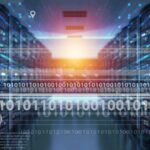While automation and energy-efficient systems will undoubtedly be necessary for cost savings, the adoption of these systems, as well as user behavior in general, will have a significant impact on energy consumption. ICT can play a significant part in this since it can help people make better decisions and reward socially desirable behavior. In fact, involving users in the process might not only assist them in making better judgments while utilizing energy-consuming equipment, but also encourage them to do so.
On the one hand, information, and communication technology (ICT) is described as a technology that allows for increased energy efficiency, reduced energy consumption, and reduced GHG emissions in general. On the other side, information, and communication technologies (ICT) are energy consumers. The following four sub-sections discuss the key responsibilities of ICT in the household sector, which are linked by a shared goal of promoting effective use of energy resources and contributing to lower GHG emissions.
QUANTIFICATION (A)
ICT can provide a quantitative foundation for developing, implementing, and evaluating energy-efficient methods. ICT will be critical in enabling the implementation of Energy Efficiency policies as well as determining their effectiveness. Final consumers for electricity, natural gas, district heating, district cooling, and hot water must have a reasonably priced individual meter that accurately displays their energy use and provides information on the time of their energy use, according to the Energy Efficiency Directive.
The Directive on the Energy Performance of Buildings establishes a general framework for calculating a building’s energy performance. If this information is readily available, it will be easier to identify common inefficiencies, best practices, and opportunities. The ICT sector can provide tools that are critical for collecting, processing, and managing data, as well as presenting it in a standardized style.
B. IMPROVED ENERGY EFFICIENCY TO INCREASE ENERGY EFFICIENCY
AUTOMATION AND MANAGEMENT
ICT can help enhance energy efficiency by lowering the amount of energy needed to supply a product or service.
• ICT can increase efficiency in major energy-using sectors by monitoring and directly managing energy consumption. This capability could be used to minimize building energy use by up to 17%.
• By supplying cutting-edge technology that better match energy use to actual demand, such as building occupancy sensors.
ICT has the potential to reduce energy waste (e.g., Solid-state lighting is one clear example). Thin Client (computers without hard disk drives that rely on central servers for data processing), grid computing, and virtualization technologies are emerging computing solutions that promise to minimize redundancies in today’s computer-based systems.
C. EDUCATE AND CHANGE PERFORMANCE
ICT allows consumers to receive real-time, user-friendly information on the energy consumption of any energy-consuming appliance in their house or building, empowering them to make energy-saving decisions.
In addition to the information offered by ICT, it is critical to educate users on how to use this information to identify the primary consumers in their home and understand how to reduce their energy use.
D. PRESENT BRAND NEW OPPORTUNITIES
Consumers are at the heart of the Energy Union, according to a new commission Fact Sheet. Every consumer in the EU will be able to create power for personal use, store it, share it, and use it, or sell it back to the market. Households and companies will be able to better respond to pricing signals because of these developments. Accelerating the implementation of smart meters and guaranteeing that consumers have access to dynamic energy price contracts, both of which are necessary to close the gap between consumers and the market.
According to a VaasaETT research (2011), dynamic pricing can save customers up to 13% on their electricity bills by allowing them to take advantage of low-price periods. ICT, such as e-Commerce, Tele-working, and eGovernment apps, and improved collaboration technologies, can provide the means for more energy efficient business models, working habits, and lifestyles. ICT can lower demand for energy and other material resources.
ICT-based Neighborhood Management Systems will allow peer-to-peer sharing of energy produced through renewable initiatives, for example.
CONTACT US TO GUIDE YOU THROUGH.





